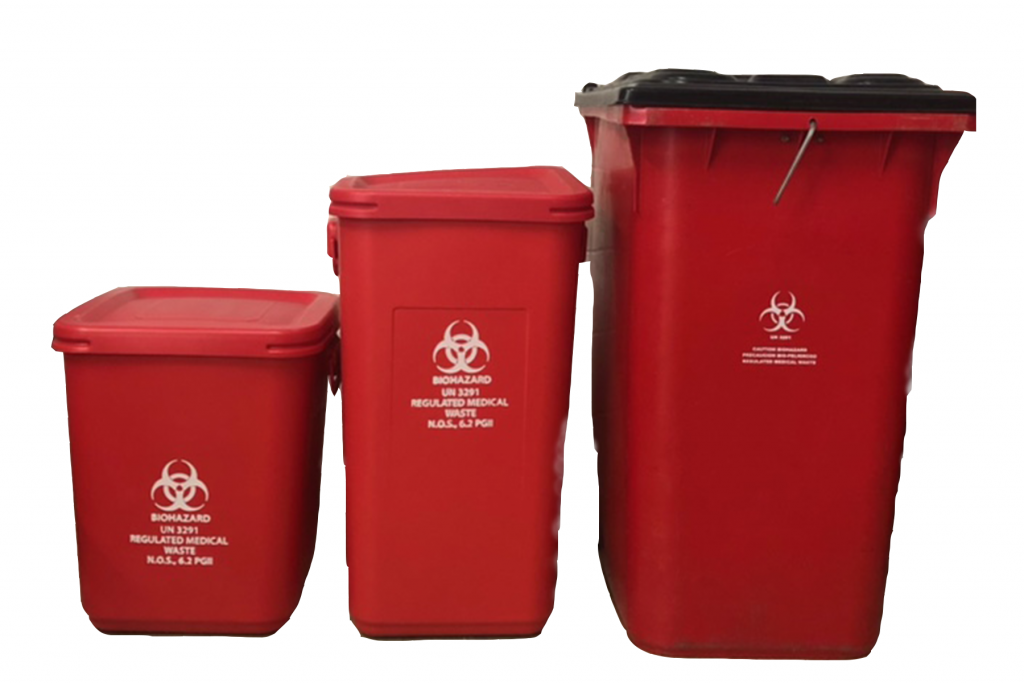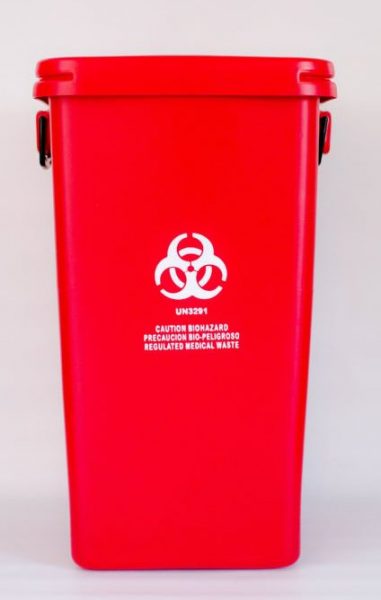Keep Ahead of Regulations: Professional Recommendations on Medical Garbage Disposal
In a world where the medical care market is continuously evolving, it is important for medical centers to remain ahead of laws when it comes to the correct disposal of clinical waste. From understanding the various groups of medical waste to implementing the appropriate collection and partition methods, this conversation will provide actionable pointers and useful understandings to help centers remain in advance of regulations in the ever-changing landscape of clinical waste disposal.
Understanding Clinical Waste Categories
Comprehending medical waste groups is important for appropriate disposal and monitoring in medical care centers. Medical waste refers to any waste created by healthcare tasks that might position a hazard to public health or the atmosphere. It is crucial to classify clinical waste accurately to ensure its secure handling, transport, disposal, and therapy.
There are numerous groups of medical waste that health care centers require to be accustomed to. The most typical groups include contagious waste, pathological waste, sharps waste, pharmaceutical waste, and chemical waste. Each classification has specific guidelines and guidelines for its proper management and disposal.
Pathological waste refers to human cells, organs, or body parts that need unique handling and disposal. Pharmaceutical waste comprises run out, extra, or polluted medications that need careful handling and disposal.
Staying Up-To-Date With Regulatory Adjustments
Remaining present with regulative changes is important for health care facilities to guarantee compliance and correct administration of medical waste disposal. medical waste removal near me. With guidelines continuously evolving, it is essential for medical care centers to stay current to prevent penalties, penalties, and prospective harm to the setting and public health and wellness
To stay in advance of regulatory adjustments, health care facilities need to establish a system for surveillance and tracking updates. This can be done by subscribing to governing newsletters, participating in seminars and workshops, and actively taking part in market organizations. Furthermore, centers ought to mark an employee or team accountable for staying notified and disseminating info to pertinent stakeholders.
Routine interaction with regulatory companies is additionally essential. Medical care facilities must develop relationships with regional, state, and government agencies to ensure they understand any changes in laws that may affect their waste monitoring practices. This can be done with routine conferences, participation in public comment periods, and aggressive engagement with regulatory companies.
Moreover, healthcare centers should take into consideration partnering with waste management business that specialize in clinical waste disposal (medical waste disposal services with WasteX). These business are usually well-versed in the most up to date guidelines and can give guidance and support to guarantee compliance
Carrying Out Appropriate Collection and Partition Approaches
To properly take care of clinical garbage disposal, medical care centers have to establish correct collection and partition approaches based on governing standards. Applying these approaches makes certain the secure handling and disposal of possibly harmful products, safeguards the atmosphere, and reduces the risk of infections and injuries to medical care employees and the basic public.
Appropriate collection and segregation methods involve the usage of marked containers and identifying systems. Health care facilities should give plainly identified containers for different sorts of clinical waste, such as sharps, contagious waste, pharmaceutical waste, and non-hazardous waste. These containers should be color-coded and plainly significant to prevent confusion and advertise simple identification.
Additionally, medical care centers ought to educate their personnel on the appropriate procedures for accumulating and segregating medical waste. This consists of educating them on the various kinds of waste, the appropriate containers to make use of, and the value of complying with standards and guidelines. Routine training sessions and correspondence course should be performed to guarantee that team members continue to be updated address on ideal methods.
Furthermore, health care centers ought to develop a system for regular collection and disposal of clinical waste. This may include partnering with licensed waste administration companies that focus on clinical waste disposal. These business will make sure that the collected waste is delivered and gotten rid of in conformity with regulatory demands.
Picking the Right Disposal Methods

Incineration is among one of the most reliable and common techniques for disposing of certain sorts of medical waste, such as pathological waste and sharps. It includes the controlled combustion of waste at high temperatures, minimizing it to ash. Nonetheless, incineration can launch dangerous toxins right into the air and add to air contamination.

Various other disposal methods consist of chemical treatment, microwave therapy, and landfilling. Chemical treatment entails making use of chemicals to disinfect and counteract the waste. Microwave treatment makes use of microwave energy to heat and sanitize the waste. Landfilling entails burying the waste in a marked landfill location (medical waste disposal services with WasteX). Landfilling should be the last resort due to the potential risk of contamination to soil and groundwater.
Guaranteeing Compliance Through Paperwork and Training
After thoroughly taking into consideration the proper disposal approaches for clinical waste, medical care centers have to make certain conformity with laws and decrease ecological influence by carrying out efficient paperwork and training procedures. This step is essential in preserving a risk-free and sustainable environment for both healthcare employees and the public.

Medical care employees that handle medical waste ought to get ideal training on waste partition, handling, and disposal procedures. By supplying detailed training, health care facilities can equip their personnel to make informed choices and decrease the risk of inappropriate waste disposal.
Verdict
Finally, remaining in advance of guidelines in medical waste disposal is essential for healthcare facilities. medical waste removal services. Comprehending the different categories of clinical waste, staying updated with governing adjustments, carrying out proper collection and segregation approaches, selecting the suitable disposal approaches, and making certain conformity through documents and training are all crucial actions. By following these standards, health care organizations can properly handle and dispose of clinical read the full info here waste in a risk-free and responsible manner
From recognizing the different classifications of clinical waste to carrying out the right collection and partition methods, this conversation will give useful understandings and actionable pointers to aid facilities stay ahead of laws in the ever-changing landscape of clinical waste disposal. - medical waste disposal services with WasteX
The most typical groups include transmittable waste, pathological waste, sharps waste, pharmaceutical waste, and chemical waste. Medical care facilities must provide clearly labeled containers for different kinds of clinical waste, such as sharps, transmittable waste, pharmaceutical waste, and non-hazardous waste. Medical care centers ought to establish a detailed system to videotape and track all facets of medical waste disposal, including types of waste generated, quantities, and disposal methods used. Healthcare employees that take care of clinical waste needs to obtain appropriate training on waste partition, handling, and disposal procedures.